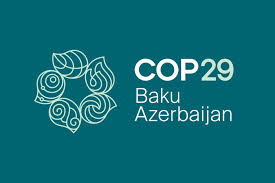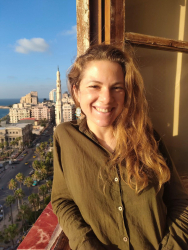


The InterAcademy Partnership (IAP) reinforced its commitment to addressing the critical intersections of climate change and health at COP29, held in Baku, Azerbaijan. Through the participation of its consultant, Robin Fears, IAP made significant contributions to the event's agenda, further solidifying its role as a leader in science-policy dialogue on climate action.
Dr. Fears delivered two impactful presentations at the GLOBE-organized Parliamentary Pavilion on 18 November 2024, focusing on "Climate and Education" and "Climate and Health." These sessions stressed the necessity of integrating education systems and health policy into climate action frameworks, emphasizing regional collaboration, especially in the Caspian Sea area.
In the first presentation, “Green Economy Education Challenges”, Fears highlighted:
In his second presentation, “Climate and Health: Scientific Opportunities for Change”, he addressed:
Both presentations underscored the critical need for interdisciplinary collaboration, education, and policy-driven solutions to address the dual crises of climate change and health, while prioritizing equity and inclusivity. Watch the full video recordings here.
COP29 also marked the soft launch of the Observer Research Foundation's (ORF) volume on climate change and health, which featured an IAP-contributed chapter titled “Framing the Challenge, Urbanisation and Climate Change: Shared Risks, Health Challenges and Pathways to Resilience.” Co-authored by Fears, Peter McGrath and Montira Pongsiri, this chapter delves into the disproportionate health impacts of climate change on urban populations, particularly in LMICs. The volume serves as a resource for researchers and policymakers, fostering actionable solutions for building healthier, more resilient cities.
IAP aims to inspire transformative change through collaboration, advocacy and evidence-based solutions. Fears' engagement at COP29 exemplifies the organization's dedication to fostering partnerships and advancing informed climate action policies. Read more about the IAP programme on Climate Change and Health here.
